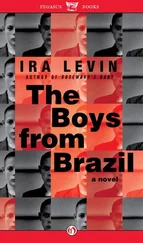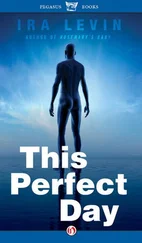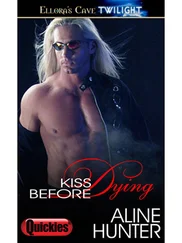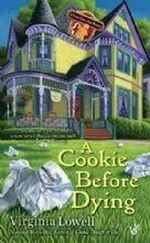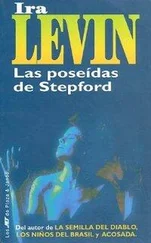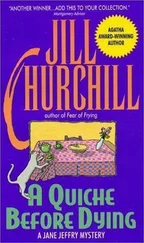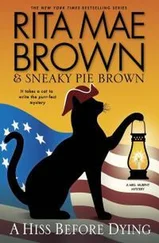"All right." He hesitated, and his voice dropped. "You're still coming tonight, aren't you, Marion?"
Her lips clenched. She thought for a moment. "Because I don't want to hurt Bud's mother's feelings," she said finally.
Kingship closed the door.
They went to a drugstore on Lexington Avenue, where Gant ordered coffee and cherry pie, and Kingship, a glass of milk.
"So far, so good," Gant said.
Kingship was gazing at a paper napkin he held. "What do you mean?"
"At least we know where we stand. He didn't tell her about Stoddard. That makes it practically certain that-"
"You heard Marion," Kingship said. "They don't talk about school because of Ellen."
Gant regarded him with slightly lifted eyebrows. "Come on," he said slowly, "that may satisfy her; she's in love with him. But for a man not to tell his fiancйe where he went to college..."
"It isn't as if he lied to her," Kingship protested.
Sardonically Gant said, "They just didn't talk about school."
"Considering the circumstances, I think that's understandable."
"Sure. The circumstances being that he was mixed up with Dorothy."
"That's an assumption you have no right to make."
Gant stirred his coffee slowly and sipped it. He added more cream and stirred it again. "You're afraid of her, aren't you," he said.
"Of Marion? Don't be ridiculous." Kingship set his glass of milk down firmly. "A man is innocent until he's proved guilty."
"Then we've got to find proof, don't we?"
"You see? You're assuming he's a fortune hunter before you've started."
"I'm assuming a hell of a lot more than that," Gant said, lifting a forkful of pie to his mouth. When he had swallowed it he said, "What are you going to do?"
Kingship was looking at the napkin again. "Nothing."
"You're going to let them get married?"
"I couldn't stop them even if I wanted to. They're both over twenty-one, aren't they?"
"You could hire detectives. There are four days yet. They might find something."
"Might," Kingship said. "If there's anything to find. Or Bud might get wind of it and tell Marion."
Gant smiled. "I thought I was being ridiculous about you and Marion."
Kingship sighed. "Let me tell you something," he said, not looking at Gant. "I had a wife and three daughters. Two daughters were taken from me. My wife I pushed away myself. Maybe I pushed one of the daughters too. So now I have only one daughter. I'm fifty-seven years old and I have one daughter and some men I play golf and talk business with. That's all."
After a moment Kingship turned to Gant, his face set rigidly. "What about you?" he demanded. "What is your real interest in this affair? Maybe you just enjoy chattering about your analytical brain and showing people what a clever fellow you are. You didn't have to go through that whole rigamarole, you know. In my office, about Ellen's letter. You could have just put the book on my desk and said 'Bud Corliss went to Stoddard.' Maybe you just like to show off."
"Maybe," Gant said lightly. "Also maybe I think he might have killed your daughters and I've got this quixotic notion that murderers should be punished."
Kingship finished his milk. "I think you'd better just go back to Yonkers and enjoy your vacation."
"White Plains." Gant scraped together the syrupy remains of the pie with the side of his fork. "Do you have ulcers?" he asked, glancing at the empty milk glass.
Kingship nodded.
Gant leaned back on his stool and surveyed the man beside him. "And about thirty pounds overweight, I'd say." He put the red-clotted fork in his mouth and drew it out clean. "I should estimate that Bud has you figured for ten more years, tops. Or maybe he'll get impatient in three or four years and try to hurry you on."
Kingship got off his stool. He pulled a dollar from a money-clipped roll and put it on the counter. "Good-by, Mr. Gant," he said, and strode away.
The counterman came over and took the dollar. "Anything else?" he asked.
Gant shook his head.
He caught the 5: 19 for White Plains.
In writing to his mother, Bud had made only the most vague allusions to Kingship's money. Once or twice he had mentioned Kingship Copper, but never with any clarifying phrases, and he was certain that she, whose poverty-formed conception of wealth was as hazy and inexact as a pubert's visions of orgies, had not the slightest real comprehension of the luxuriance of living into which the presidency of such a corporation could be translated. He had looked forward eagerly, therefore, to the moment when he could introduce her to Marion and her father, and to the surrounding magnificence of Kingship's duplex apartment, knowing that in light of the coming marriage her awe-widened eyes would regard each inlaid table and glittering chandelier as evidence, not of Kingship's capabilities, but of his own. The evening, however, was a disappointment. Not that his mother's reaction was anything less than he had anticipated; with mouth partially opened and teeth lightly touching her lower lip, she drew in her breath with soft sibilance, as though seeing not one but a series of miracles; the formally attired servant-a butler!-the velvety depth of the carpets, the wallpaper that wasn't paper at all but intricately textured cloth, the leather-bound books, the golden clock, the silver tray from which the butler served champagne-champagne!-in crystal goblets... Vocally, she restrained her admiration to a gently smiling "Lovely, lovely," accompanied by a slight nodding of the stiff newly-waved gray hair, giving the impression that such surroundings were by no means completely alien to her,-but when her eyes met Bud's as the toast was drunk, the bursting pride she felt leaped out to him like a thrown kiss, while one work-roughened hand surreptitiously marveled at the cloth of the couch on which she sat.
No, his mother's reaction was warming and wonderful. What made the evening a disappointment was the fact that Marion and Leo had apparently had an argument; Marion spoke to her father only when appearances made it inescapable. And furthermore, the argument must have been about him, since Leo addressed him with hesitant unfocused eyes, while Marion was determinedly, defiantly effusive, clinging to Mm and calling him 'dear' and 'darling,' which she had never done before when others were present. The first faint worry began to sting him like a pebble in his shoe.
Dinner, then, was dismal. With Leo and Marion at the ends of the table and his mother and he at the sides, conversation passed only around the edges; father and daughter would not talk; mother and son could not talk, for anything they had to say would be personal and exclusive-sounding before these people who were still in a sense outsiders. So Marion called him 'darling' and told his mother about the Sutton Terrace apartment, and his mother spoke to Leo about 'the children,' and Leo asked him to pass the bread please, not quite looking at him.
And he was silent, lifting each fork and spoon slowly as he selected it, so that his mother could see and do likewise; an affectionate conspiracy fallen into without word or signal, dramatizing the bond between them and forming the one enjoyable aspect of the meal-that and the smiles that passed across the table when Marion and Leo were looking down at their food, smiles prideful and loving and all the more pleasing to him because of the unsuspecting heads whose path they slipped across.
At the end of the meal, although there was a silver lighter on the table, he lit Marion's and his own cigarette with his matches, afterwards tapping the folder absentmindedly on the cloth until his mother had noticed the white cover on which Bud Corliss was stamped in copper leaf.
But all along there was the pebble in his shoe.
Later, it being Christmas Eve, they went to church, and after church Bud expected to take his mother back to her hotel while Marion returned home with Leo. But Marion, to his annoyance, assumed an unfamiliar coquetry and insisted on accompanying them to the hotel, so Leo went off by himself as Bud squired the two women into a taxi; He sat between them, reciting to his mother the names of what landmarks they passed. The cab, at his direction, depart- ed from its course so that Mrs. Corliss, who had never been to New York before, might see Times Square at night.
Читать дальше

